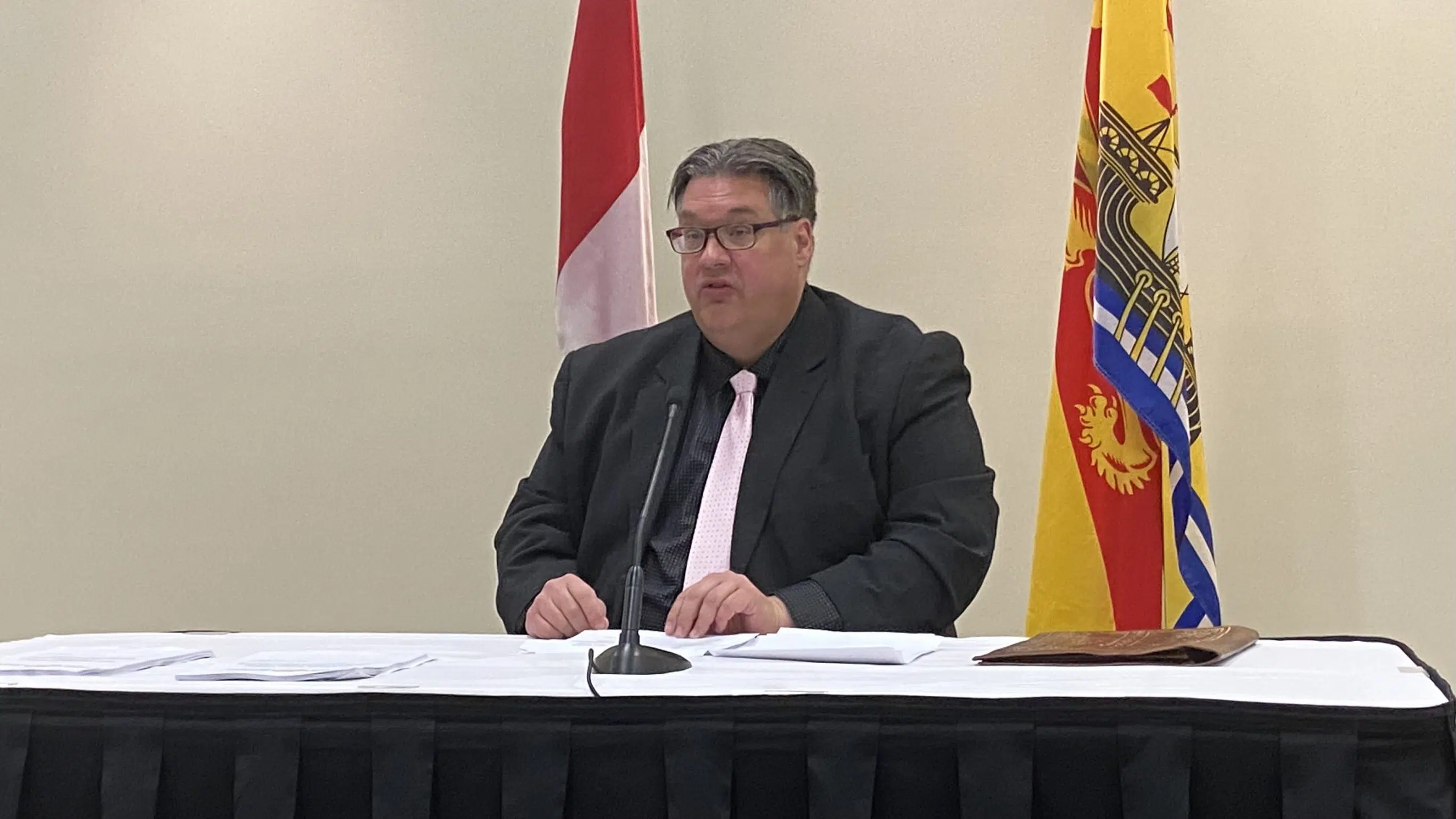New Brunswick’s child and youth advocate says the latest changes to Policy 713 do not address his concerns, despite assertions from the education minister.
In fact, Kelly Lamrock said the province’s gender identity policy in schools is now more “overtly discriminatory” than before.
Lamrock has released an addendum to his August report in response to “clarifications” made to Policy 713 by Education Minister Bill Hogan.
The advocate’s initial report said the June changes to the policy violate the statutory conditions of several laws, including the Human Rights Act, the Education Act, and the Canadian Charter of Rights and Freedoms.
Hogan stood by the controversial changes in light of the advocate’s report but said there were some areas that needed to be clarified.
RELATED: N.B. makes ‘clarifications’ to Policy 713 after advocate’s report
Policy 713 has always required students under 16 to get parental consent for their preferred name and pronoun to be used for official records, however, there was nothing preventing a teacher from doing so informally.
Hogan clarified that the use of preferred names and pronouns in the classroom and in extracurricular activities is now considered to be formal, meaning it will require parental consent.
“Policy 713 is now more specific but it is thus more overtly discriminatory. One problem is that now restrictions on choosing the name you want to be called are clearly targeted at only trans and non-binary students,” Lamrock wrote in his addendum.
“As written, the policy actually bans trans and non-binary students from using any nickname [at] all, while explicitly extending that same privilege to any student who is not trans or non-binary.”
The education minister has said it is OK if students want a nickname, as long as it is not related to gender identity.
He said teachers “can always ask” whether or not a student is trans or non-binary before agreeing to use a nickname — something Lamrock said creates “serious” issues.
“Asking if someone is a member of a minority group before deciding which rules apply is really textbook discrimination,” he wrote.
Lamrock also referenced the changes that allow guidance counselors, psychologists and social workers to use a trans or non-binary child’s preferred name or pronoun without parental consent when they are offering support to them.
The advocate said the department has accepted “clear evidence” that it is “unethical and ineffective” for professionals working with children to call them names they do not wish to be called.
“Why the department accepts this but still insists upon teachers and principals calling children names they do not wish to be called is an explanation they have not chosen to offer,” said Lamrock.
Lamrock also questioned the department’s decision to change the definition of “formal use of the name” to include all classroom interactions and extracurricular activities.
He noted the definition of “formal use” explicitly includes extracurricular and co-curricular activities, while the definition of “informal use” applies to “social interactions outside of classroom interactions.”
“Thus, it appears that some interactions in extracurricular or co-curricular settings are now both formal and informal,” said Lamrock.
Lamrock wrote there is “legitimate doubt” as to whether or not the updated policy is legal. He said the province’s attorney general should ask the Court of Appeal for a judicial reference on the matter.
“Suspending the changes until the Court of Appeal can hear and dispose of a reference would be a wise move,” he said.
The advocate also cautioned there is “potential for legal liability of educators and districts who apply Policy 713 as worded.”
He said districts have the “legal authority to follow statute law and to resolve policy conflicts in favour of the interpretations that support the Charter and the Human Rights Act.”
“Teachers and school districts are independent actors and if they engage in actions which breach privacy or human rights law, the fact that they were following orders may not shield them from legal accountability for those actions,” wrote Lamrock.
“If they choose to follow the government’s instructions and begin deadnaming children, using their official record name without consent, and asking children if they are trans, they may find themselves as respondents in the legal response.”





